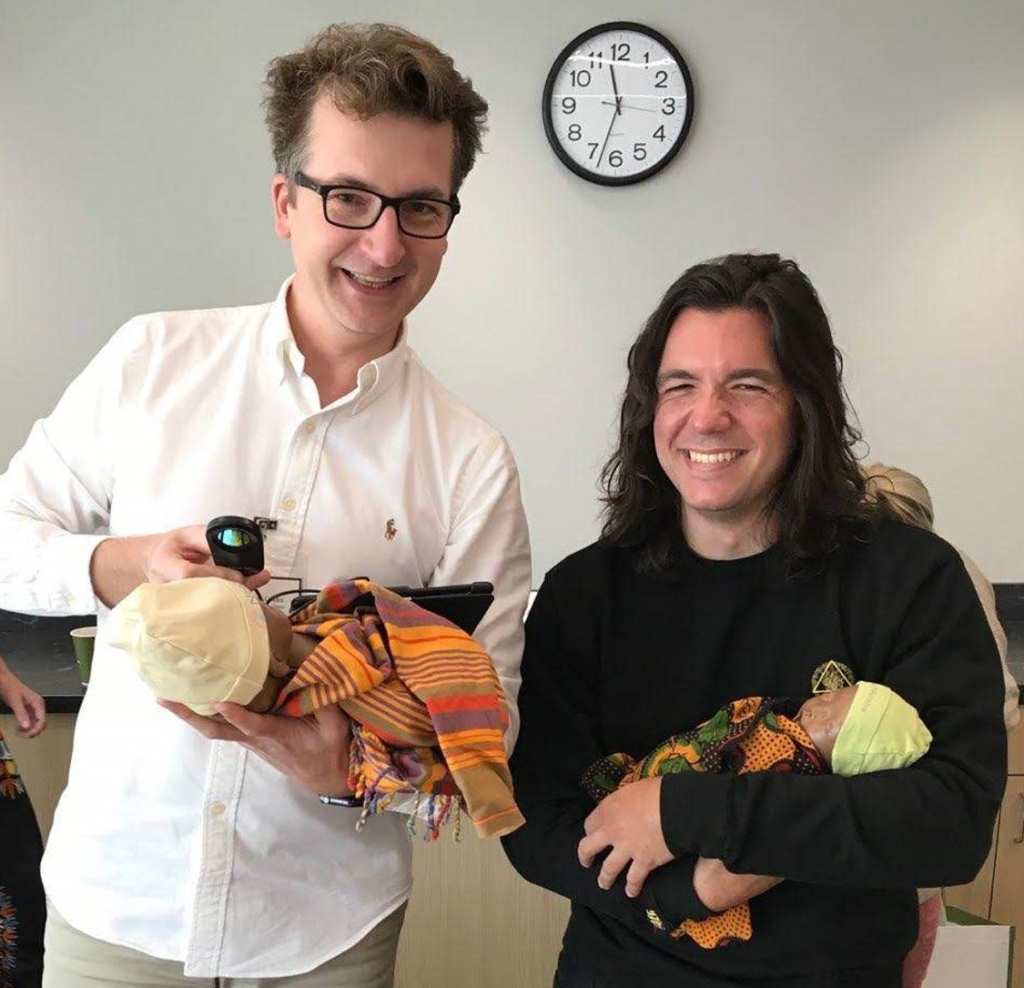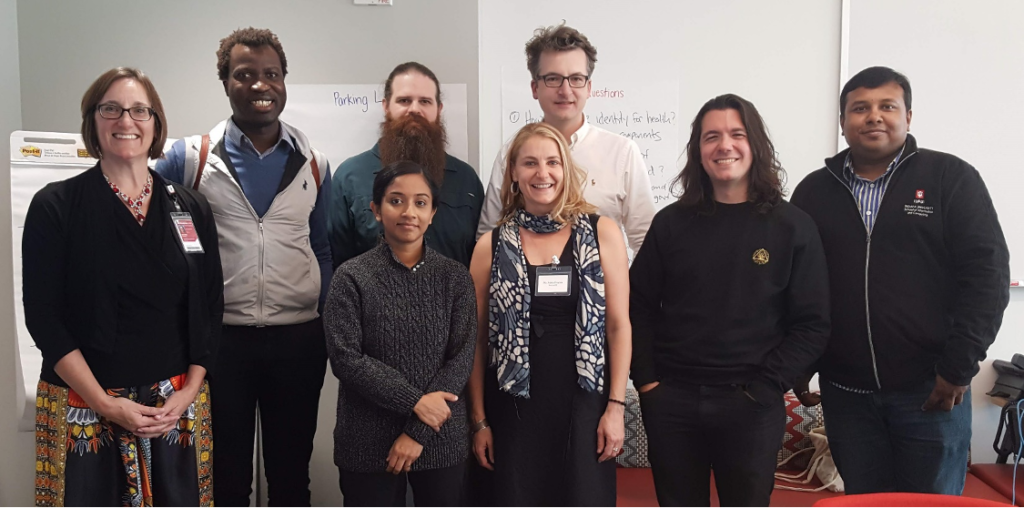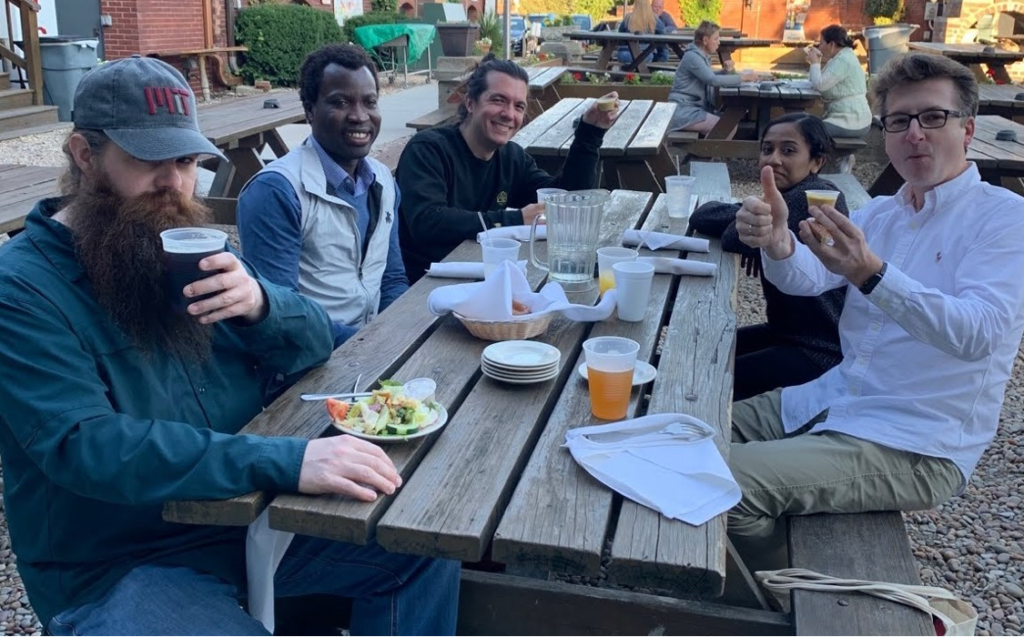Background
Birth registration is a critical element of newborn care. Increasing the coverage of birth registration is an essential part of the strategy to improve newborn survival globally, and is central to achieving greater health, social, and economic equity as defined under the United Nations Sustainable Development Goals. Parts of Eastern and Southern Africa have some of the lowest birth registration rates in the world. Mobile technologies have been used successfully with mothers and health workers in Africa to increase coverage of essential newborn care, including birth registration. However, mounting concerns about data ownership and data protection in the digital age are driving the search for scalable, user-centered, privacy-protecting identity solutions. In addition to improving rates of birth registration, portability, and linkage of mother-baby health records is also an important challenge.
Innovation
We envision a solution that ultimately puts mothers at the center of birth registration with support and birth verification from key stakeholders such as village chiefs and elders and/or health care providers. Despite the gender gap in phone ownership and literacy, a growing number of women are able to use basic mobile phone functions. Our system will provide a mobile birth registration alternative while preserving the current paper-based “birth notification” system. In this way, the evolution of the digital system can take place at the pace of the stakeholders involved. We are also exploring the manner by which open-source solutions can be “bundled” in order to provide an integrated solution, by which overlapping processes related to birth registration and linkage of mother-baby health records can be developed, in order to allow guardians in LMICs the ability to more effectively and safely manage important aspects of their children’s lives, such as access to health care, educational opportunities, and social support services.
One innovative aspect of the NeoInnovate Collaborative Consortium approach is that we are applying a scientific lens to the study of this complex problem. We are “agnostic” in terms of the potentially “best” technological solution, and believe that, in fact, there may eventually be many effective tools within this problem space. In general, we believe that offering stakeholders and end-users a “menu” of effective, validated, and thoughtful solutions, from which they can then select the best tool to fit their particular local setting, maybe the best and most equitable way forward. Thus, various teams within the consortium are exploring different potential approaches to solving the challenges related to birth registration, and linkage of mother-baby health records, in LMICs.
Impact on Human Health
An estimated 2.5 million babies globally die during their first month of life, known as the neonatal period, and approximately 47% of all the deaths of children under 5-years old occurred in the neonatal period (Hug et al., 2019). Birth registration is almost universal in most high-income countries where the vast majority of births take place in facilities. But in LMICs, where many births take place in the home, about 1 in 4 children under age five are not registered. Of the children who are registered, an estimated 237 million children under age 5 globally do not have proof of registration in the form of a birth certificate (Selim, 2019). Some of the highest rates of neonatal mortality and the lowest rates of birth registration can be found in parts of Sub-Saharan Africa. SDG targets 16.9 and 17.9 set forth the goals of providing legal identity for all, including birth registration, by 2030, and supporting countries to establish robust civil registration systems (Hereward et al., 2019). The agenda calls for the development of innovative technologies to help reach these targets, however, experts are calling for caution that new technologies do not increase the potential for human rights abuses or further disenfranchise marginalized populations. A lack of adequate data governance infrastructure across nations threatens the ability of identity technologies to protect the personal identifying data of both children and guardians (Hug et al., 2019; Schoemaker et al., 2019; World Bank, 2018; Privacy International, 2018).
Collaborators
Dr. Geoffrey Siwo — https://biology.nd.edu/people/geoffrey-siwo/
Dr. Adam Czajka — https://engineering.nd.edu/faculty/adam-czajka/
Center for Research Computing, University of Notre Dame — https://crc.nd.edu/about/
Dr. Saptarshi Purkayastha — https://www.iupui.edu/~plhi/
Additional Reading
To be updated …


